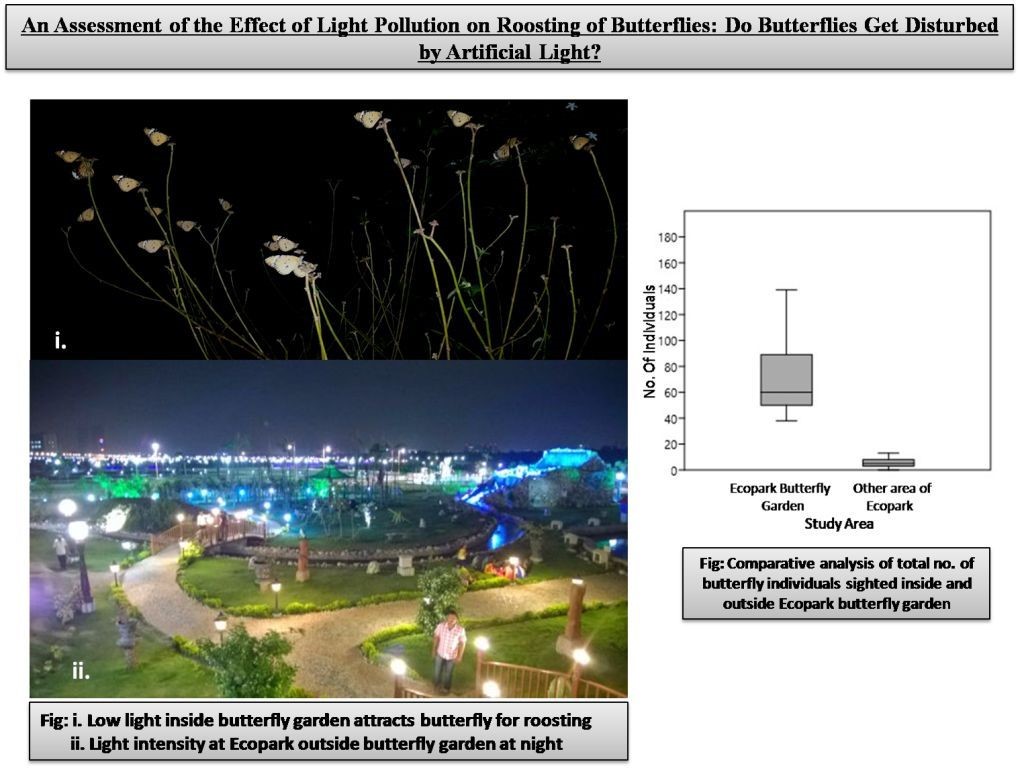An Assessment of the Effect of Light Pollution on Roosting of Butterflies: Do Butterflies Get Disturbed by Artificial Light?

Mode of Presentation: Poster
Conference Name: Student Conference on Conservation Science (SCCS 2018)
Year: 2018
Area: Entomofauna
Authors: Souparno Roy, Namrata Das, Sarika Baidya and Arjan Basu Roy
Abstract
Introduction: Roosting of butterflies is an interesting nocturnal phenomenon which refers to settlement of most of the butterflies either in solitary or gregarious manner on the perch of plants for taking rest on a nightly basis. Now a days, light pollution has been taken into serious consideration by the environmentalists as this pollution is growing exponentially due to urbanization and is severely affecting the nocturnal animals ranging from small insects to birds, even mammals like bats. In our study, we tried to observe the effect of artificial street light on roosting of butterflies in an urban park of Kolkata.
Methodology: We conducted our study at Ecotourism Park, Kolkata where we chose Eco-Tourism Park Butterfly Garden for our control site (as minimum artificial light is used in the garden after sunset) and compared the roosting behaviour emphasizing specially on diversity of roosted butterflies of that place with other areas of the Eco-tourism park where there are plenty of artificial street lights. We compared the following parameters: i. species richness and abundance of butterflies on the sites, ii. light intensity on the roosting sites, iii. canopy level of the plants, iv. starting time of roost, v. preferred height and distance from light source by the butterflies for roosting, vi. disturbance level caused by the predators (such as birds), vii. roosting pattern (solitary or communal).
Result: Butterflies have been observed to get severely disturbed by the intense streetlight. They take more time to settle down to roost in presence of artificial light and in most of the time they shift to the darker sites. On the other hand, number of roosting butterflies has been found to reduce drastically in other areas of the park where there are more artificial lights compared to the butterfly garden. Encounter frequency of different species in roost is also much higher in low-light area. Both communal and solitary roosting has been found to occur inside butterfly garden and interestingly roost size in communal roosting is significantly higher in darker places.

Discussion: Our study suggests that like every other insect and bird, street light is a major factor that causes disturbance to the butterflies during their roosting that in turn affects their physical health and behaviour. So, there is an immediate urgency to regulate the intensity of street light by regulators and to stop unnecessary usage of lights. The street lights should be positioned in such a way that the light do not fall directly onto the perches. Installation of colourful lights and halogens on the plants should be stopped too.

